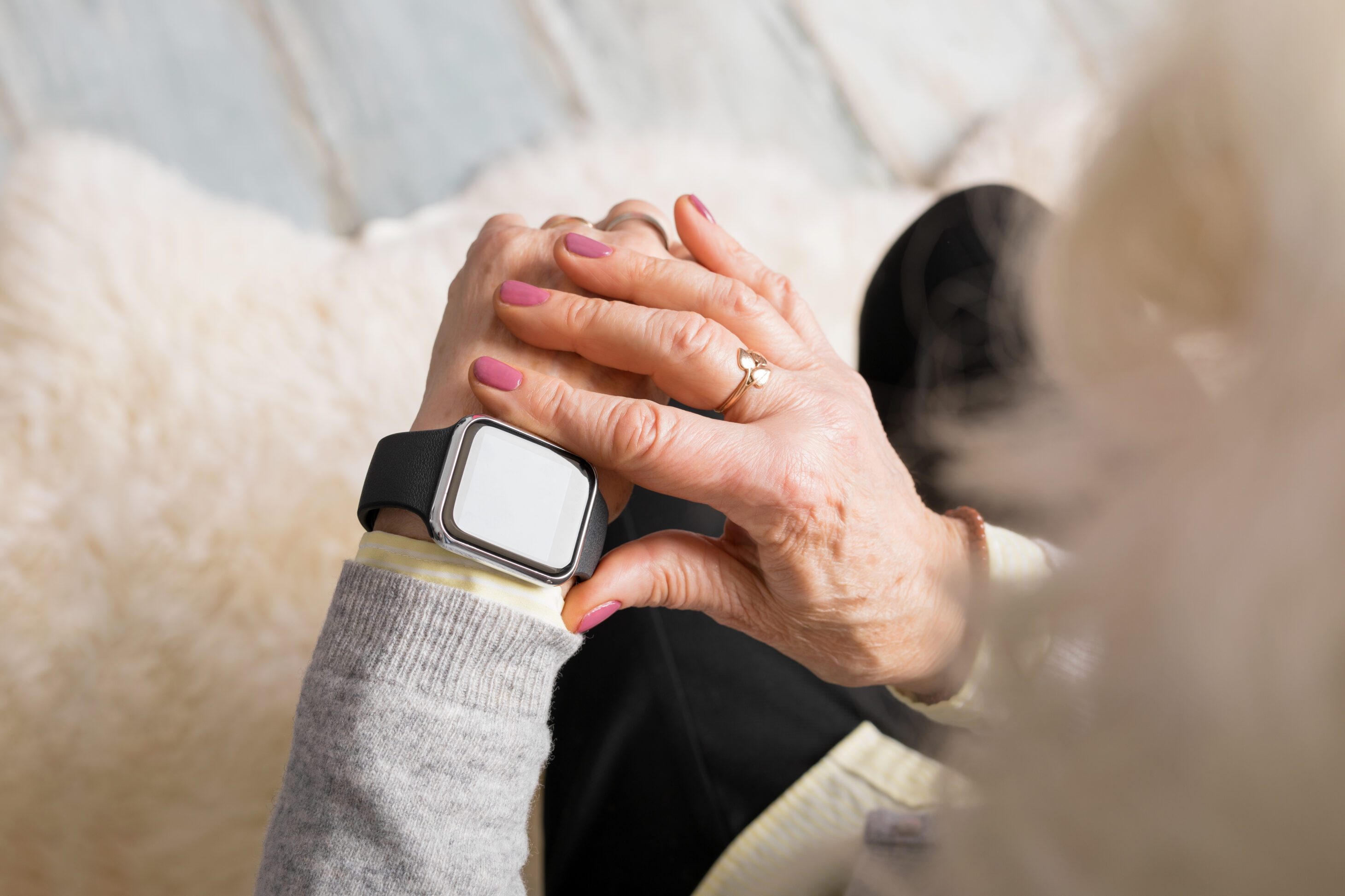The Rise of Technology in Elderly Care
Canada’s aging population is accelerating the demand for technological innovations in elderly care. With global projections indicating that the number of individuals aged 80 and over will rise from 126.5 million to more than 446.6 million by 2050 (News-Medical), the healthcare system must evolve to meet the growing needs of seniors.
Innovative tools and smart devices are now helping older adults live more independently while maintaining their health and safety. These advancements range from wearable health monitors and assistive robotics to telemedicine platforms and smart home systems—all tailored to support aging Canadians.
Benefits of Technology for Senior Care in Canada
Improved Safety
Wearable devices like smartwatches and medical alert bracelets detect falls and monitor vital signs. When emergencies occur, they send alerts directly to caregivers or emergency services, ensuring a swift response.
Advanced Health Monitoring
Devices now help seniors track their daily activity, sleep quality, and medication schedules. These insights enable more proactive care and healthier habits.
Personalized AI-Driven Care
Artificial intelligence allows for customized support plans. AI-powered robots can remind seniors to take medications, prepare meals, and assist with household tasks.
Remote Healthcare via Telemedicine
Older adults can now consult with doctors via video calls, receive follow-ups, and access care from home—minimizing the need for hospital visits and reducing healthcare costs.
Support for Independent Living
Smart home technologies empower seniors to control their living environments. Automated lights, thermostats, and security systems enhance comfort and reduce the risk of accidents.
Looking for trusted support to help an aging parent or loved one live independently? Explore our personalized home care services to find a solution that fits your family’s needs.
Key Technologies Enhancing Elderly Care in Canada
Robotics in Senior Mental Health
Robotic companions are proving valuable in geriatric psychiatry. Especially during times of communicable illness, like the COVID-19 pandemic, these robots offer social support while reducing unnecessary human contact. Their presence can reduce loneliness and improve emotional wellbeing.
Smart Home Devices for Aging in Place
Smart home devices offer convenience and safety by enabling remote control of lights, temperature, and security systems. Sensors can detect unusual behavior, such as inactivity or hazards, and automatically notify caregivers or emergency services.
Device | Features |
Smart Lights | Programmable settings, remote control via smartphone |
Smart Thermostats | Automated temperature regulation based on user preferences |
Security Systems | Motion detection, remote surveillance, emergency alerts |
Wearable Health Monitoring Devices
These devices continuously track vital health data and activity levels. Smartwatches can monitor heart rate, steps, and sleep. Medical alert bracelets provide real-time fall detection and emergency communication.
Device | Capabilities |
Smartwatches | Monitor heart rate, sleep patterns, physical activity |
Medical Alert Bracelets | Detect falls, send alerts, provide location tracking |
Telemedicine and Remote Monitoring
Telehealth services enable seniors to connect with healthcare professionals through secure digital platforms. Whether for routine check-ups or chronic condition monitoring, remote access ensures continuity of care from the comfort of home.
Service Type | Benefits |
Virtual Consultations | Accessible, convenient, and reduce travel needs |
Remote Monitoring | Continuous updates on patient status and faster interventions |
Assisted Living Robots
These robotic assistants help seniors with daily living tasks such as medication reminders, housekeeping, and even social interaction. They also relieve pressure on caregivers while enhancing quality of life for aging adults.
Function | Purpose |
Medication Reminders | Support regular medication adherence |
Housekeeping Assistance | Help with cleaning, organizing, and light chores |
Companionship | Promote engagement and reduce isolation |
Curious about more senior wellness resources? Visit our resource centre for caregiver tools, guides, and helpful updates.
As Canada continues to experience a rise in its aging population, senior care technology is playing a vital role in reshaping the landscape of elderly support. By integrating smart devices, telehealth, robotics, and AI, today’s innovations are helping seniors lead longer, healthier, and more independent lives. Whether you’re planning care for a loved one or researching future options, embracing these technological tools can significantly improve the aging experience.

